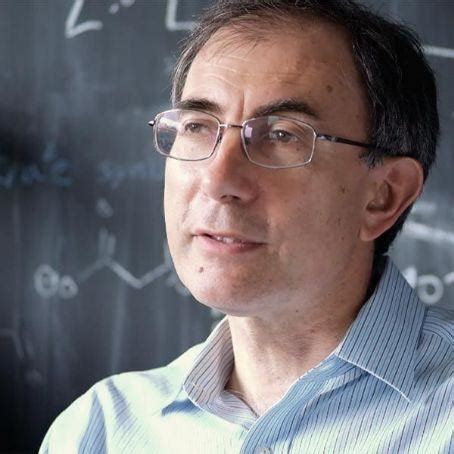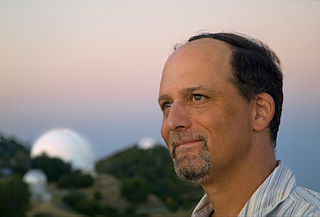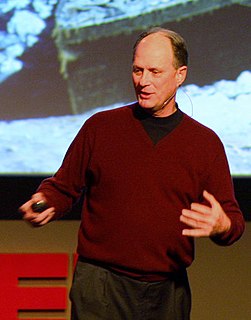Цитата Димитара Саселова
Мы заботимся о таких планетах, как Земля, потому что к настоящему времени мы поняли, что жизни как химической системе действительно нужна планета меньшего размера с водой, камнями и большим количеством сложной химии, чтобы зародиться, возникнуть и выжить.
Связанные цитаты
Люди спрашивают: зачем мне океан? Поскольку океан является краеугольным камнем системы жизнеобеспечения Земли, он формирует климат и погоду. Он содержит большую часть жизни на Земле. 97% земной воды находится там. Это голубое сердце планеты - мы должны заботиться о своем сердце. Это то, что делает жизнь возможной для нас. У нас все еще есть действительно хороший шанс сделать вещи лучше, чем они есть. Они не станут лучше, если мы не примем меры и не вдохновим других сделать то же самое. Никто не без силы. У каждого есть возможность что-то делать.
Химические соединения сравнимы с системой планет в том, что атомы удерживаются вместе за счет химического сродства. Они могут быть более или менее многочисленными, простыми или сложными по составу, и в строении материалов они играют ту же роль, что и Марс и Венера в нашей планетной системе, или составные элементы, такие как наша Земля с ее Луной, или Юпитер с его спутниками... Если в такой системе частицу заменить частицей другого характера, то равновесие может сохраняться, и тогда новое соединение будет проявлять свойства, подобные тем, которые проявляло исходное вещество.
Основная загадка, на которую никто не имеет ответа, заключается в следующем: есть ли какой-то размер, при котором планеты меняют свою природу с богатых водой планет, таких как Нептун, на скалистые планеты, такие как Земля? Мы нашли две планеты размером с Землю по радиусу, но они находятся очень близко к своей звезде-хозяину, поэтому вода на поверхности испарится.
Чтобы быть наставником, и эффективным, нужно заботиться. Вы должны заботиться. Вам не нужно знать, сколько квадратных миль в Айдахо, вам не нужно знать, каков химический состав химии, крови или воды. Знайте, что вы знаете, и заботьтесь о человеке, заботьтесь о том, что вы знаете, и заботьтесь о человеке, с которым вы делитесь.
Химия возникает в результате преобразования земли, воздуха, огня и воды. Вся химия — это просто движение внутри этих вещей, и поэтому мы испытываем радости и печали от горячего и холодного, сухого и влажного из-за этих химических превращений. Подобным образом мы создаем и переживаем мир времени, пространства, движения и энергии через нашу интуицию, наши мысли, наши ощущения и наши чувства.
Тот факт, что эта цепочка жизни существовала [в вулканических жерлах на морском дне] в черном холоде морских глубин и была совершенно независима от солнечного света — ранее считавшегося источником всей жизни на Земле — имеет поразительные разветвления. Если бы там могла процветать жизнь, питаемая сложным химическим процессом, основанным на геотермальном тепле, то жизнь могла бы существовать в аналогичных условиях на планетах, далеких от питающего света нашей родительской звезды, Солнца.
Большинство планет размером с Юпитер вращаются вокруг материнской звезды по очень эллиптической орбите. Это означает, что они будут часто пересекать орбиту любой похожей на Землю планеты и выбрасывать ее в открытый космос, делая жизнь невозможной. Но наш Юпитер движется по почти идеальной круговой орбите, предотвращая столкновение с любой землеподобной планетой, делая возможной жизнь.




































